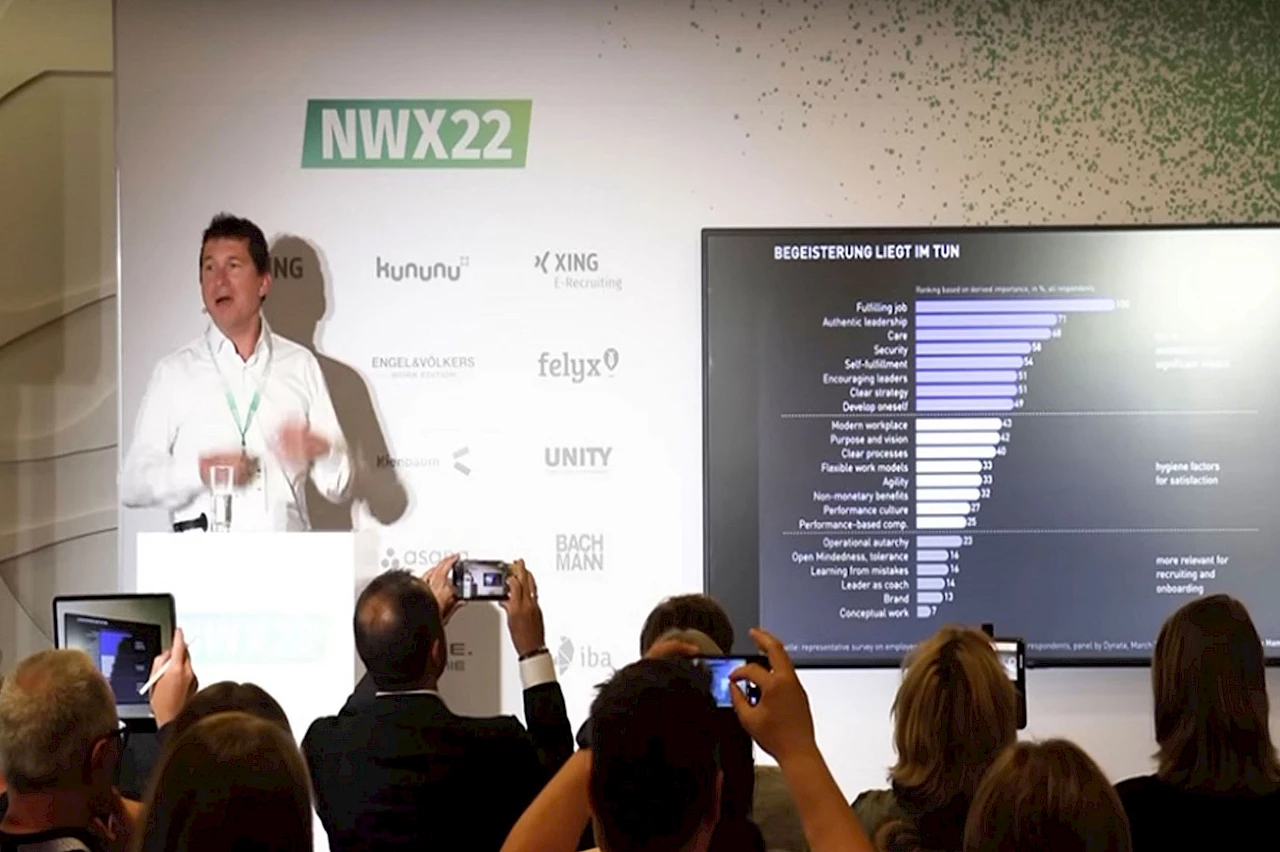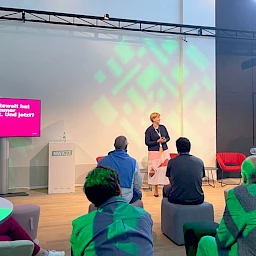In his lecture at New Work Experience in June 2022 in Hamburg, author and business psychologist Prof. Dr. Ingo Hamm focused on the topic of purpose, the meaningful aspect of work, and critically reviewed the current purpose discussion.
For him, this debate appears overdone at many points. Finding a sense of purpose is always an individual process, neither a decree from above nor theatrical purpose formulations, which often miss the actual corporate purpose, are helpful. Who could imagine, for example, that “To inspire and nurture the human spirit” would be the motto for Starbucks’ purpose?
Finding a sense of purpose is individual and results from action
For Hamm, “purpose” should always be formulated in such a way that it appears simple and honest; employer branding, on the other hand, should stick to the facts. For him, finding a sense of purpose in one’s work is something individual that arises in the work itself and is not rooted in the company’s purpose. The professor of business psychology has the same opinion as Viktor Frankl, the Austrian neurologist, psychiatrist and founder of logotherapy and existential analysis, for whom a sense of purpose could not be given but had to be found.
In his lecture, Hamm referred to the model of US psychologists Richard Hackman and Greg Oldham, who describe five work characteristics that arise to self-efficacy through work itself:
- Variety of demands
- Holism
- Significance
- Autonomy and
- Feedback.
According to this, work is fulfilling if it is diverse, relevant and holistic, can be carried out independently and receives feedback. Finding a sense of purpose usually happens in a very concrete and competence-related way.
One’s own job as a driver for more enthusiasm among employees
In his lecture, Hamm also referred to two studies of his own that identify work itself as the main drivers of employee enthusiasm. His representative study from 2019, which he conducted together with the expert for transformation projects and managing director of impactWunder Strategieberatung, Wiebke Köhler, comes to the conclusion that especially trendy topics such as purpose discussions do little to increase motivation among employees. Rather, it is fulfilling work, authentic, reliable leadership, employer welfare and a feeling of security, as well as self-fulfilment and the opportunity to develop one’s own potential that have positive effects. Hamm’s second study with 18- to 29-year-old students at Darmstadt University of Applied Sciences, who were presented with different job advertisements, once those that promised purposeful activities and those that seemed to come from more or less purpose-driven companies, also clearly shows: the concrete job and the conditions associated with it are more important than the company purpose. Simply postulating purpose is useless; what counts is the content of job itself and, in the best case, a good combination of both.
Matching personal skills with the company demand
Prof. Hamm encourages employees to take more personal responsibility. Becoming aware of one’s skills at an early stage is an important premise for individual sense of purpose in one’s job. However, current purpose discussions also demand a rethink on the corporate side. Using skill-based interviews to filter out suitable candidates as early as the recruiting stage and aligning further training offers for existing employees closely with their skills – for Hamm, these are important demands on personnel and HR managers, as is the implementation of project careers alongside classic hierarchical careers. Hamm also advises managers against mixing management tasks and coaching functions. For him, responsibility for content and responsibility for personal development are two different pair of boots. A trust-building leadership style that does not have to become too personal is clearly preferred by many employees.






